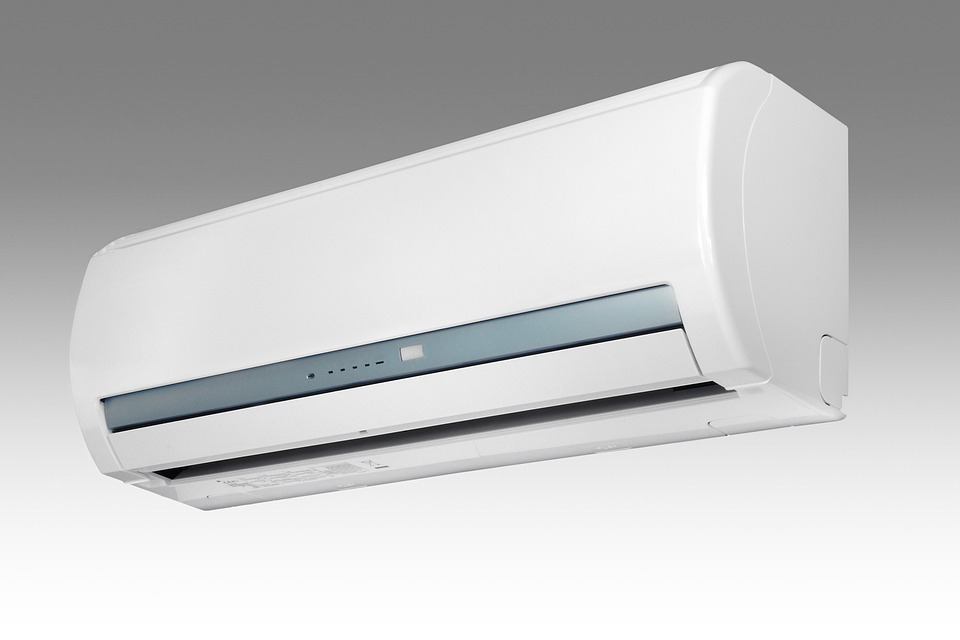Pretty much the worst thing that can happen during the summer heat is your air conditioning system not working properly. One of the most common problems that will cause problems is an AC gas leak.
So, what are you supposed to do in this situation? Before you do anything, it is a good idea first to identify if the system is leaking gas or not.
4 Signs of an Air Conditioner Gas Leak
There are many indications that your AC system might be leaking gas, and they are quite easy to spot if you know what they are.
1. Electricity Bills Are Higher
If there is a gas leak in your AC system, the compressor will have to work harder to compensate for the lack of refrigerant. This will mean that it is heavier on electricity and will result in an electricity bill that might shock you!
2. AC System Not Cooling Efficiently
If you find that the room isn’t reaching the setpoint, or is taking a long time to, you’ve discovered a classic sign of AC gas leak. The AC doesn’t have enough refrigerant to convert all of the warm air to cool air, resulting in less efficient cooling.
3. Leaking Water
The refrigerant in the system absorbs the heat and then passes through the evaporator coil to cool it down. If there is an AC gas leak and there is not a sufficient amount of refrigerant in the system, this will cause condensation to accumulate on the coil and freeze. This will eventually end up in the unit leaking water.
4. Strange Sounds
The only sounds you should be hearing from your AC unit is the slight hum of the compressor, if anything. If you hear some hissing or other louder sounds, that is a clear indication of an AC gas leak.
Best Methods To Detect Air Conditioner Gas Leak
To check an AC system for a refrigerant leak successfully, you will have to become familiar with several different methods. Just one method is insufficient to find all of the various types of refrigerant leaks, so you need to know which leak detecting method is appropriate for which system.
It is really up to the technician on what approach they will use, and their decision will depend on whether the system has refrigerant or is being pressure tested with nitrogen.
Electronic Detection Method (Sniffers)
Electronic leak detectors are commonly used to detect AC gas leaks because they are highly sensitive. It is advised that this method is always used along with the bubble method, which will be explained later.
There are two main types of electronic leak detectors: corona suppression and heated diode. The corona suppression detectors measure the difference in conductivity between the two electrodes on the unit. A drop in current is an indication of a leak.
The heated diode electronic leak detectors use a ceramic-based element that breaks the molecules of the refrigerant apart using heat. A small electric current is generated, and if there is an AC gas leak, the current will rise high enough to trip the alarm. The heated diode option is less prone to false alarms than the corona suppression models.
Other AC Gas Leak Detection Methods
The bubble method is the oldest and most used AC gas leak detection method. The technician will apply this method where they suspect the refrigerant is leaking, and if there is a leak, it will produce bubbles at that point. This is best used along with an electronic leak detector.
If the technician cannot find the source of the leak, they will add a fluorescent-based dye into the refrigerant and allow it to circulate the system. If there is an AC gas leak, they will find it clearly with a UV light. This method can take a few days for the dye to circulate the system fully, so that must be kept in mind.
Risks of Gas Leaking in AC
When an AC gas leak is detected, it should be dealt with by a qualified technician as soon as possible. There are many health risks associated with gas leaks. Side effects of an AC gas leak can be nausea or headaches when the gas is inhaled. Your skin can be irritated, and your heart rate can temporarily rise as well.
If the individual is exposed to an AC gas leak for a prolonged time, it can further cause some severe health problems. Lung failure or even death can occur in these situations, and that is why it is so important to address an AC gas leak as quickly as possible when detected.
Best Solutions for an Air Conditioner Gas Leak
Getting the AC gas leak fixed quickly can save you serious damage to your AC unit and is generally better for your health. Once the qualified AC technician has come out, they may recommend one of these common solutions:
- Replace the evaporator coil entirely
- Repair any cracks or holes that they can see
- Refill the refrigerant with an added sealant
Summary
Detecting an AC gas leak does not have to be that complicated if you know what to look for and have some basic tools. One of the most important things is to check the entire system for leaks and not just repair one leak as there may be multiple leaks in the system. If you need a professional air conditions technician to take a look at your system, do not hesitate to request a call back from Glenco, and they will get a technician out to you ASAP.







